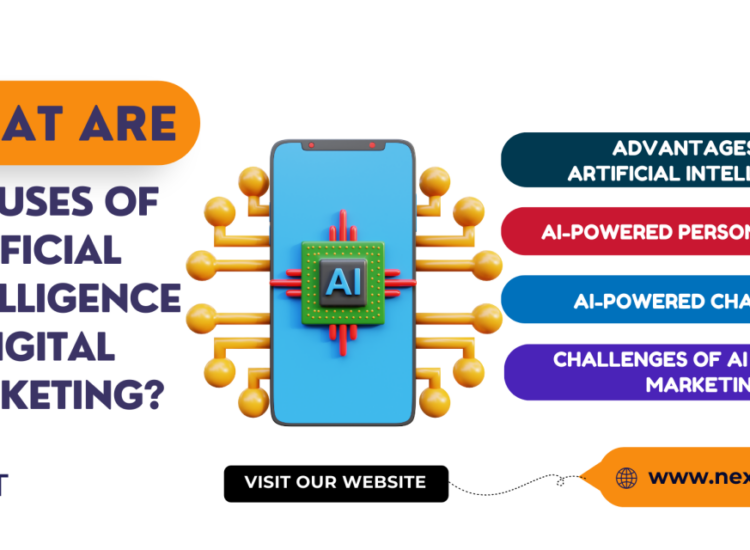The customer service landscape has undergone a remarkable transformation, with businesses facing a surge in support inquiries and increasing demands for immediate, personalized assistance. Enter conversational AI platforms — the innovative solution that is poised to revolutionize the way businesses engage with their customers.
Toc
- 1. Introduction to Conversational AI
- 2. The Transformative Benefits of Conversational AI
- 3. Related articles 01:
- 4. Choosing the Right Conversational AI Platform
- 5. The Future of Conversational AI in Customer Service
- 6. Related articles 02:
- 7. FAQs
- 8. Conclusion: Unlocking the Full Potential of Conversational AI Platforms
Introduction to Conversational AI

Conversational AI, also known as chatbots or virtual assistants, is a type of artificial intelligence that enables computers to communicate and interact with humans in a natural language format. This technology has gained widespread popularity in recent years due to its ability to provide instant and personalized customer support.
By using machine learning algorithms and natural language processing (NLP), conversational AI platforms can understand and respond to human queries, mimicking human conversations. These systems are trained on vast amounts of data, allowing them to continuously learn and improve their responses over time.
Applications of Conversational AI
The applications of conversational AI go beyond just customer support. Here are some other areas where this technology is making a significant impact:
- E-commerce: Conversational AI allows customers to interact with virtual assistants, providing them with personalized product recommendations and helping them make purchases.
- Healthcare: Virtual assistants can assist patients in scheduling appointments, answering general health queries, and even monitoring their health conditions.
- Finance: Financial institutions are using conversational AI to provide instant support to customers by answering their banking inquiries or assisting with financial planning.
- Human Resources: Companies are leveraging conversational AI for onboarding new employees, answering HR-related questions, and even conducting initial interviews.
Empowering Customer Service with Conversational AI
Conversational AI platforms leverage natural language processing (NLP) and machine learning to enable intelligent, human-like interactions between businesses and their customers. These platforms not only streamline support processes but also enhance the customer experience by allowing for efficient resolution of queries around the clock. With the ability to handle high volumes of inquiries simultaneously, businesses can reduce wait times and operational costs significantly. Moreover, conversational AI provides valuable insights through data analysis, helping companies understand customer behavior and preferences, and allowing them to tailor their services accordingly. As a result, businesses adopting this technology are better equipped to build stronger, more meaningful relationships with their customers.
The Anatomy of Conversational AI
At the core of conversational AI platforms lies a sophisticated interplay of advanced technologies. Natural Language Processing (NLP) extracts the intent and meaning from user inputs, while Natural Language Understanding (NLU) comprehends the context and sentiment behind those inputs. An AI model then predicts the most appropriate response, which is generated through Natural Language Generation (NLG).
This dynamic process allows conversational AI platforms to engage in fluid, human-like dialogues, understanding user needs and providing tailored solutions. By continuously learning from each interaction, these platforms become increasingly adept at delivering personalized, accurate, and efficient customer support.
The Transformative Benefits of Conversational AI

The implementation of conversational AI platforms in customer service and support operations can yield a myriad of compelling benefits:
Improved Response Times and Efficiency
Conversational AI can automate the handling of routine inquiries and common customer requests, allowing human agents to focus on more complex issues that require specialized attention. For instance, conversational AI can handle tasks like resetting passwords, providing account information, or answering basic product questions. This frees up human agents to address more complex issues such as troubleshooting technical problems, handling customer complaints, or providing personalized advice. This streamlining of tasks can lead to significantly reduced response times, enhancing the overall customer experience.
Enhanced Customer Satisfaction
A 2023 study found that 70% of customers reported feeling satisfied with their interactions with conversational AI platforms. This is likely due to the platforms’ ability to provide personalized, around-the-clock support and quickly resolve customer issues. By offering a personalized touch, available 24/7 to swiftly resolve customer issues, conversational AI platforms lead to a significant boost in customer satisfaction. Customers appreciate the convenience and responsiveness of these intelligent assistants, fostering stronger brand loyalty.
Reduced Workload and Cost Savings
Automating a significant portion of customer interactions through conversational AI can lead to substantial cost savings for businesses. The reduced need for human agents to handle repetitive tasks translates to lower staffing and training costs, while also improving operational efficiency. Additionally, conversational AI platforms can handle multiple inquiries simultaneously, reducing the need for businesses to hire additional agents during peak hours.
3. https://cacaocafenewjersey.com/mmoga-ai-software-development-a-guide-for-engineering-leaders
5. https://cacaocafenewjersey.com/mmoga-mastering-content-creation-with-ai-marketing-tools
With the potential for significant cost savings and improved efficiency, implementing conversational AI technology in customer service operations is a sound investment for businesses of all sizes.
Valuable Data and Insights
Conversational AI platforms collect a wealth of data from customer interactions, providing valuable insights into common pain points, customer preferences, and areas for improvement. For example, a company might use this data to identify the most frequent customer questions, understand common complaints, or analyze product preferences. This information can then be used to improve products, services, and customer support processes. These insights can inform strategic decisions and drive continuous optimization of the customer service experience.
Choosing the Right Conversational AI Platform

When selecting a conversational AI platform for your customer service operations, there are several key factors to consider:
Natural Language Processing Capabilities
Evaluate the platform’s ability to understand complex queries, recognize context, and respond appropriately to varying customer inputs. Robust NLP capabilities are essential for providing a seamless and personalized customer experience, enabling the platform to grasp nuances in language and deliver relevant responses. This means that the software should not only interpret the words being used but also understand the intent behind them, which is crucial for effective communication.
Multichannel Integration
Ensure the platform integrates seamlessly with your existing communication channels, such as website chat, email, social media, and even voice-based interactions. This omnichannel approach ensures a consistent customer experience across all touchpoints, allowing customers to engage with your brand through their preferred medium. Such integration helps in maintaining continuity in conversations, making it easier for customers to switch channels without losing context.
Customization and Scalability
Look for a platform that offers the flexibility to tailor conversational flows, responses, and branding to your specific business needs. The ability to customize interactions not only enhances the user experience but also allows for a brand-aligned communication style that resonates with your target audience. Additionally, the platform should be able to scale up efficiently as your customer base and support requirements grow, ensuring that it can handle increased traffic without sacrificing performance.
Analytical Capabilities
Prioritize platforms that provide comprehensive analytics and reporting features, enabling you to track key performance metrics such as response time, customer satisfaction scores, and conversation success rates. These insights will allow you to identify areas for improvement and make data-driven decisions that enhance overall service quality. With detailed analytics, you can not only optimize the performance of the conversational AI platform but also gain valuable insights into customer behavior, preferences, and trends that can inform business strategies.
Ease of Implementation and Maintenance
Consider the platform’s ease of deployment, user-friendliness, and the availability of training resources to ensure a smooth integration and ongoing optimization of your conversational AI solutions. A platform that is intuitive and easy to navigate will reduce the learning curve for your team, while comprehensive training materials can help staff leverage the system’s full potential. Additionally, consider the platform’s support and maintenance offerings to ensure that any issues can be resolved quickly and that the system continues to evolve alongside your business needs.
Empowering Agents with Conversational AI
While conversational AI platforms automate the handling of routine customer inquiries, they also play a crucial role in empowering customer service agents. By relieving agents of repetitive tasks, these platforms allow them to focus on more complex and rewarding aspects of their work, leading to increased job satisfaction and reduced burnout.
Conversational AI can also provide agents with real-time insights and recommendations, equipping them with the necessary information to handle customer interactions more effectively. This collaboration between human agents and intelligent assistants creates a synergistic environment where the strengths of both are leveraged to deliver exceptional customer service.
The Future of Conversational AI in Customer Service

Advancements in Conversational AI Technologies
As technology evolves, so do the capabilities of conversational AI platforms. Innovations in areas like machine learning, artificial intelligence, and natural language processing continue to drive the development of more advanced and intuitive systems. For instance, future iterations of conversational AI are expected to possess deeper contextual understanding, enabling them to predict customer needs better and offer even more personalized responses. Additionally, as sentiment analysis becomes more refined, these platforms will be equipped to gauge the emotional tone of customer interactions, allowing for more empathetic and human-like assistance.
The Role of AI in Multilingual Support
Another significant area of development is multilingual support, which will allow businesses to cater to a global audience more effectively. With advancements in language translation technologies, conversational AI will be able to understand and communicate in multiple languages seamlessly, breaking down language barriers and providing inclusive support across diverse markets.
1. https://cacaocafenewjersey.com/mmoga-ai-software-development-a-guide-for-engineering-leaders
4. https://cacaocafenewjersey.com/mmoga-mastering-content-creation-with-ai-marketing-tools
Ethical Considerations and Privacy Concerns
As conversational AI becomes more pervasive, ethical considerations and privacy concerns also come to the forefront. Businesses must ensure that their AI platforms handle customer data responsibly, maintaining a high standard of privacy and security. Implementing transparent data policies and complying with regulations like GDPR will be vital to building trust with customers and safeguarding their information.
By integrating these advanced capabilities while addressing ethical concerns, conversational AI platforms will continue to transform the landscape of customer service, setting new standards for efficiency, personalization, and satisfaction. As these technologies continue to evolve, companies that embrace them will be well-positioned to lead in delivering exceptional customer service experiences.
FAQs

What are the potential challenges of implementing conversational AI?
The primary challenges in implementing conversational AI include the initial investment required for setup and integration, concerns around data security and privacy, and the need for ongoing maintenance and optimization to ensure optimal performance. Businesses must also address the potential resistance to change and ensure adequate training for customer service agents to work seamlessly with the new technology.
How can I ensure the accuracy of conversational AI responses?
Ensuring the accuracy of conversational AI responses involves a multi-faceted approach. Careful curation and continuous refinement of the training data, robust testing procedures, and a combination of machine learning and human oversight are crucial. Regular monitoring of customer feedback and performance metrics can also help identify areas for improvement and drive ongoing optimization.
What are some best practices for designing effective conversational AI interactions?
Some best practices for creating engaging and helpful conversational AI interactions include:
- Prioritizing clear and natural language, avoiding jargon or overly complex phrasing.
- Providing context-appropriate options and guidance to facilitate seamless user navigation.
- Incorporating empathetic and personalized responses to build a stronger rapport with customers.
- Offering a smooth transition to human agents when the conversational AI’s capabilities are exceeded.
- Continuously gathering user feedback and iterating on the conversational design to enhance the overall experience.
Conclusion: Unlocking the Full Potential of Conversational AI Platforms
Conversational AI platforms have emerged as a transformative solution for customer service and support teams, empowering them to provide personalized, efficient, and scalable assistance to their customers. By harnessing the power of advanced technologies like natural language processing and machine learning, these platforms can automate routine tasks, enhance customer satisfaction, and unlock valuable data-driven insights.
As businesses navigate the evolving landscape of customer expectations, the strategic implementation of conversational AI will become increasingly critical. By carefully selecting and implementing the right platform, organizations can elevate their customer service operations, drive operational efficiencies, and stay ahead of the curve in an increasingly competitive market. With a focus on ethical considerations and data privacy, businesses can ensure that the benefits of conversational AI are realized while prioritizing the trust and privacy of their customers.
The future of customer service is here, and it’s powered by the transformative potential of conversational AI platforms. Embrace this technology and unlock the full potential of your customer service operations, delivering exceptional experiences that will set your business apart.















